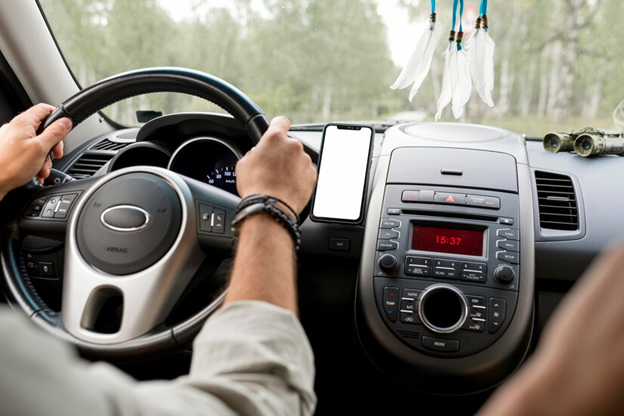
Your Guide to Protecting Your Car from Damage
- Eric Dane
- 0
- on Apr 29, 2024
Our automobiles are more than simply a means of mobility in the fast-paced world of today; they’re also a big financial investment and an expression of our personalities.
Whether you’re traveling on picturesque highways or through busy city streets, the exterior of your car is always exposed to different elements, such as bad weather and road debris. This exposure can cause unsightly damage such as rock chips, small scratches, and fading paint, which can lower the value of your cherished car when it comes to both appearance and resale.
Here are a few tips you can follow to protect your car from damage.
1. Park In The Shade
Your car may receive significant damage from direct sunlight, particularly if it is left in the sun for several hours every day.
Sunlight can cause the paint on the outside of your car to fade, accelerating its aging process. Direct sunlight can discolor the fabric on the seats and floor and cause cracks in the dashboard and seats inside the car.
Parking in a garage at home or another parking garage while you’re away is the greatest approach to protect your car from the sun. Try parking in the shade if you don’t have a garage so your car won’t be exposed to direct sunlight all day.
2. Protect Your Car From Weather Damage
From hurricanes and tornadoes to hail, floods and windstorms, severe weather can strike at any time. Even though you can’t control Mother Nature, you can protect your vehicle from potential harm.
It’s critical to be informed of impending storms, rain and snow so you can take preventative measures to avoid damaging your vehicle. For instance, you should keep your automobile away from any debris that can fly into it if a tropical storm or hurricane is bringing strong winds your way. If you don’t own a garage, you might consider keeping your vehicle in storage while the storm passes.
3. Use Ceramic Coating
Ceramic coating offers a proactive solution to safeguard your car’s exterior against a multitude of threats. Made from a durable, transparent material, high-quality PPF provides an invisible shield that absorbs the impact of rock chips, road debris, and other hazards, preventing them from reaching the underlying paint.
This type of coating offers protection against physical damage and forms a robust barrier that can withstand the rigors of daily driving. Its self-healing properties ensure that minor scratches and abrasions disappear over time, keeping your car looking good for years to come.
4. Regular Maintenance And Servicing
It is crucial to protect your car’s health by doing routine maintenance and servicing. Follow the suggested maintenance schedule provided by the manufacturer for filter replacement, fluid checks, and oil changes. Frequent maintenance helps find such problems early on and fix them before they become more serious and expensive fixes. It also guarantees safe operation and continued road safety for your car.
Washing your automobile might help stop external paint fading and cracking due to sun damage. Inadequate car washing can result in micro-scratches from dirt and dust, which exposes your car to more UV light and accelerates the fading and cracking of the paint.